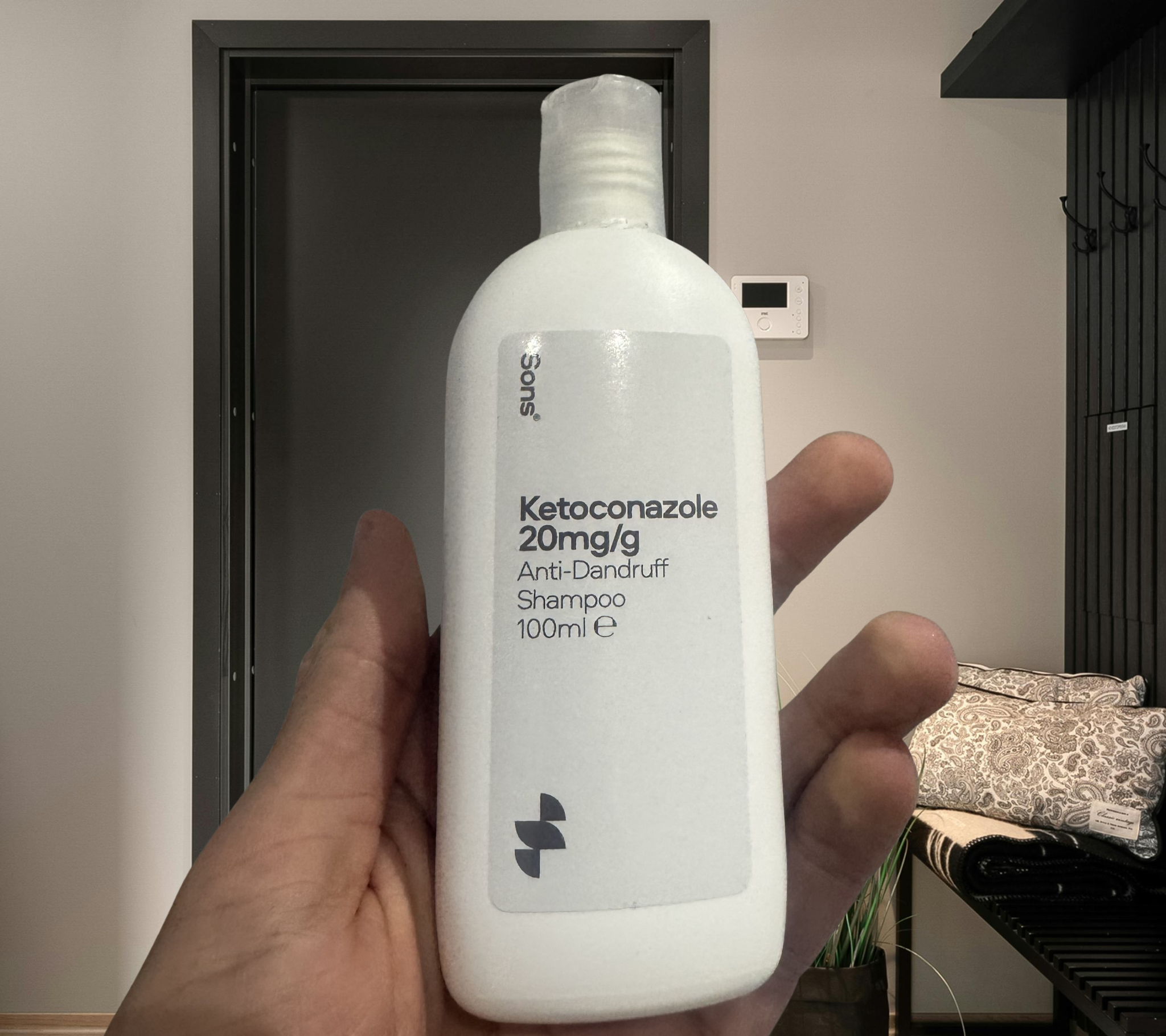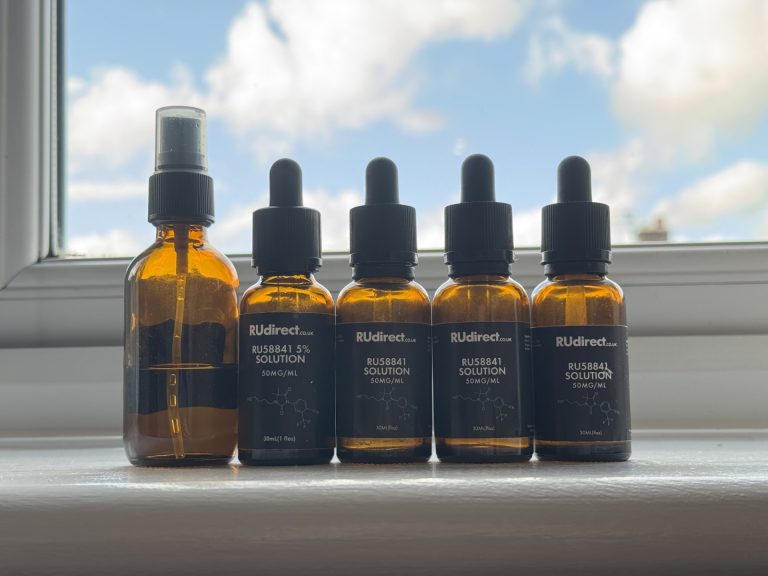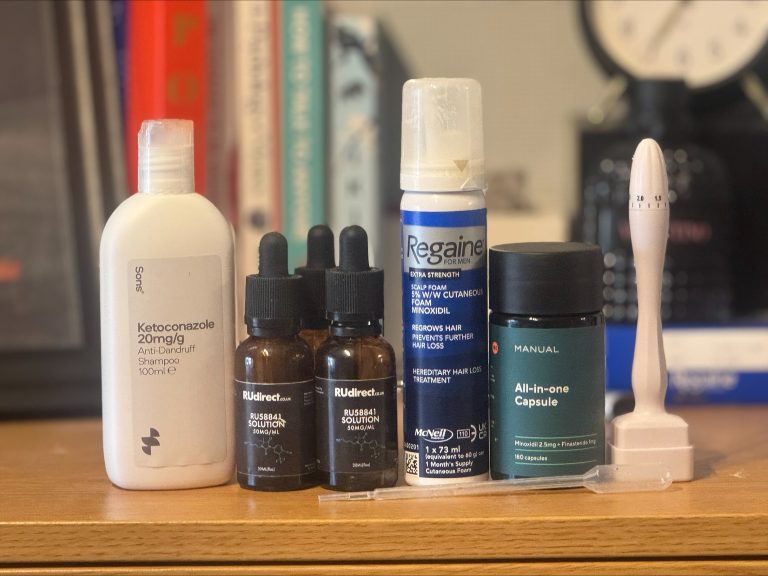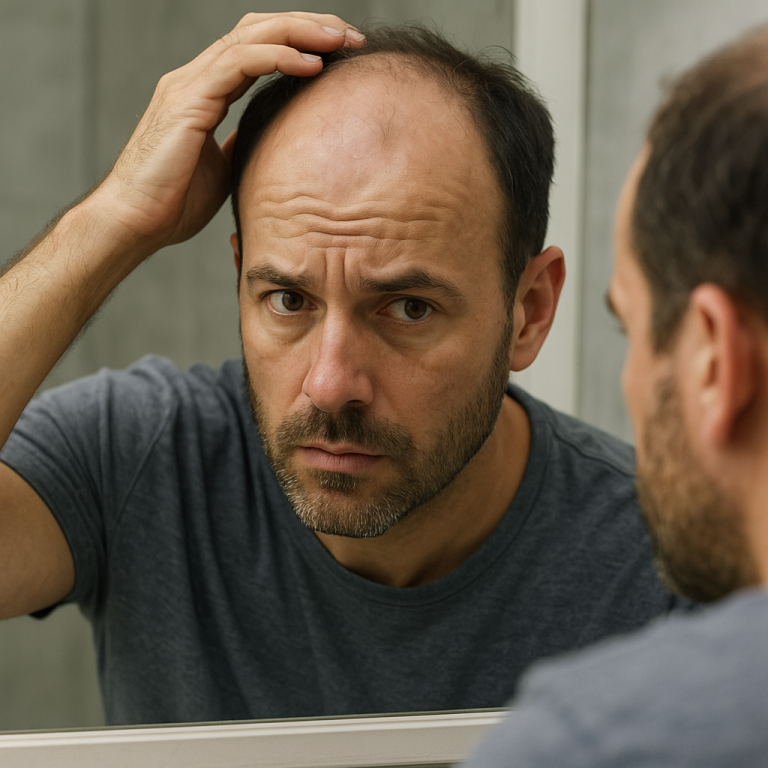When I first started noticing my hair thinning, I did what most of us do: panic-Googled everything under the sun. You name it: finasteride, minoxidil, scalp massages, derma rollers, weird supplements from Reddit. But one thing that kept popping up again and again was ketoconazole shampoo.
Now, when you hear the word “shampoo,” you probably think of something that smells nice and maybe gives you some volume. You don’t really expect it to do much else. But this stuff? It’s different and is backed up through science & my personal results and experience.
So… What Even Is Ketoconazole?
Ketoconazole is actually an antifungal ingredient, originally used for treating dandruff and conditions like seborrheic dermatitis. But somewhere along the line, people started noticing that regular use also seemed to slow hair shedding and support scalp health. Two things that are super important if you’re dealing with male pattern baldness.
It’s not magic, but it’s got some anti-androgenic properties, meaning it may help block DHT (the hormone that causes follical miniaturisation).
Why I Gave It a Go
I was already on finasteride and using minoxidil. Things were working okay, but I wanted that extra 5 to 10% edge. Something low effort and most importantly cheap!
That’s where ketoconazole shampoo slotted in perfectly.
I went with Nizoral 2%, which is the one most people recommend if you’re serious about results. I’ve found its easily available via amazon or you can even order it through your GP.
What It’s Actually Like to Use
I started using it 2 to 3 times a week, leaving it on for about 5 minutes each time before rinsing it out. The first thing I noticed? It’s drying. Like, Sahara desert levels of drying if you’re not careful. So I always follow it up with a gentle, hydrating conditioner to keep my hair feeling half-decent.
After a couple of weeks, my scalp felt better. Less itchy. Less flaky. And after a month or two, I noticed less shedding in the shower, which for any guy fighting hair loss, is a small but massive win.
The Results?
Let’s be real. Ketoconazole alone won’t regrow your hair. But used alongside other treatments, it’s been a solid support player in my stack. It keeps my scalp in check, reduces inflammation, and helps create a better environment for hair to grow.
Think of it like good soil. You need that before anything else has a chance to sprout.
Now I’ve been using it consistently for well over a year, and it’s still in my routine. Twice a week, no drama. Set and forget.
Would I Recommend It?
If you’re already taking the popular 2, finasteride or minoxidil, then adding ketoconazole shampoo to your stack is a no brainer. It’s low effort, cheap as chips, and helps support scalp health. Just don’t expect miracles on its own.
Also, if you’re dealing with dandruff or itching from topical treatments it’ll massively reduce the dryness. So even if it didn’t help with hair, I’d probably still use it.
If you’re thinking about trying it, go for it. Just be consistent, don’t overdo it, and give it time. That’s the name of the game with any hair loss treatment.
Final Thoughts
Within this blog I thought it’d be a good idea to go further into detail about the statistics which show the effectiveness of using Ketoconazole shampoo.
https://pubmed.ncbi.nlm.nih.gov/9669136
This 1998 study provides solid early clinical evidence that 2% ketoconazole shampoo can significantly support hair density and health, almost matching minoxidil’s effects while improving scalp oil balance which I found majorly impressive. It makes a clear case for adding ketoconazole to your hair loss stack, especially for long term scalp conditioning.
1998 Piérard‑Franchimont Double‑Blind Study
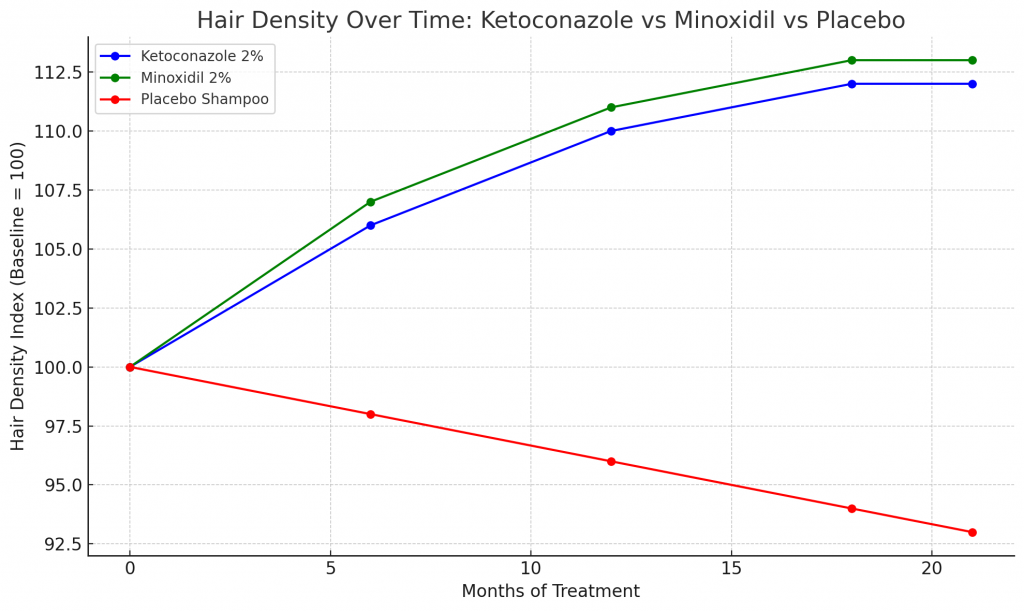
Piérard-Franchimont C, De Doncker P, Cauwenbergh G, Piérard GE. Ketoconazole shampoo: effect of long-term use in androgenic alopecia. Dermatology. 1998;196(4):474-7. doi: 10.1159/000017954. PMID: 9669136.
Here’s a graph visualising the results of the 1998 Piérard‑Franchimont Double‑Blind Study. Representing how hair density changed over 21 months for three groups.
- Ketoconazole 2% (blue): noticeable gains up to month 18, then things levelled off
- Minoxidil 2% (green): slightly better gains, but followed a very similar pattern
- Placebo shampoo (red): steady decline in hair density over time
The results of this study help backup the effectiveness of ketoconazole, providing results pretty close to minoxidil when it comes to boosting hair health, especially when used consistently over time.


